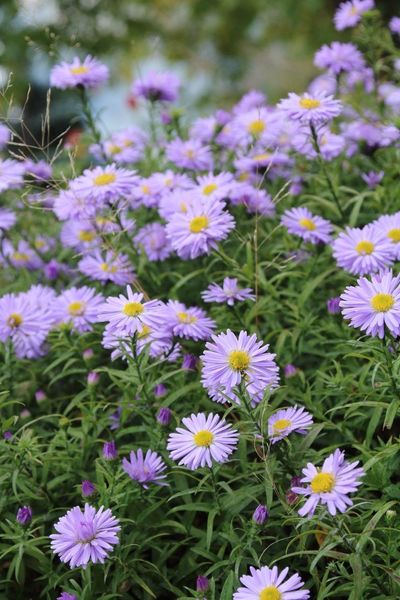Why Won’t My Asters Bloom?
A blooming aster is a welcome sight. No matter the season, the cheery, daisy-like flowers always seem to light up the garden. Although generally pretty hardy, asters can seriously disappoint when they refuse to bud or flower. If your aster plants don’t bloom, don’t worry, fixing an aster with no flowers isn’t that difficult once you find the reason behind it. Growing asters is usually a pretty simple undertaking until it isn’t. When asters hit problems, such as non-blooming, it can be tricky to know just what to do. Several common and easy-to-treat problems can be the reason for asters not flowering, including: Timing. If you asked a hundred people “when do asters flower,” you’d get a lot of different answers. This is because there are over 200 cultivars currently available in the garden trade. While you may be referring to a “Snow Flurry” aster, someone else may think you mean Alpine asters. Before you panic about your asters not blooming, check your variety’s specific bloom period. Maturity. Many perennial asters need time to really grow up before they’ll explode with brilliantly colored flowers. If your plant is reasonably young or was very small when you bought it, it might just need more time. When everything else seems right and your asters are still refusing to even set flower buds, maturity is often the problem. Give it another year and you’ll reap the benefits of your patience. Overfeeding. Although cultivated asters can look very delicate, the truth is that they haven’t come far from their wild roots. These plants are tough like weeds and, like weeds, don’t need a lot of fertilizer to really thrive. When your aster is adding a lot of foliage rapidly, even growing really tall in a relatively short span of time and skipping its flowers, this is a good sign that you’re overfeeding with nitrogen fertilizer. Decrease your feedings to just once or twice per season with a diluted fertilizer and watch your big, bushy asters burst into flower. Powdery mildew. Powdery mildew on asters is usually pretty obvious, as it’ll look like white or grey powder was spilled on leaves and flower buds. Rarely deadly when it comes to asters, powdery mildew can be very annoying since it has a reputation for causing buds to fail. Treating powdery mildew is a two-part process. First, you must increase the airflow around your plant, whether that means thinning the inside branches or removing plants that are crowding it. Improved circulation makes it hard for powdery mildew to really set in. Secondly, you can treat powdery mildew infections themselves with neem oil; just make sure to test a few days ahead of treatment and then apply it liberally. Keeping plant debris away from the asters will also help to prevent reinfection since spores can winter over this way.
